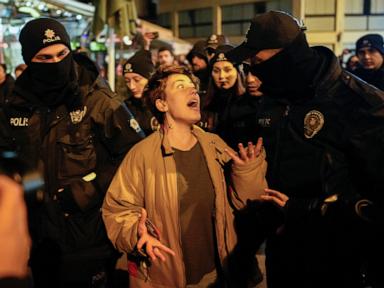ARTICLE AD BOX
-
The risk of stroke increases significantly as nighttime temperatures rise, posing a potential health concern worldwide.
The risk of stroke increases significantly as nighttime temperatures rise, posing a potential health concern worldwide.
The research team, led by the Helmholtz Research Center Munich in Germany, mapped nighttime temperatures against the number of stroke cases recorded in the German city of Augsburg over a 15-year period, and found a statistically significant increase in the risk of stroke on days with extreme temperatures. .
“We wanted to understand to what extent high nighttime temperatures pose a health risk,” says Alexandra Schneider, an epidemiologist at Helmholtz Munich. “This is important because climate change is causing nighttime temperatures to rise much faster than daytime temperatures.”
The study included a total of 11,037 stroke cases from 2006 to 2020. Overall, the risk of stroke increased by 7% during nights classified as “tropical,” when the temperature remained above 14.6 degrees Celsius.
There was evidence of an increase in the number of strokes over time as well: hot nights were associated with two additional strokes per year (from 2006 to 2012), while hot nights were associated with 33 additional cases per year (from 2013 to 2020), reflecting higher degrees of stroke. Temperature over the years.
Researchers say a variety of factors could be behind these statistics, including an increased likelihood of dehydration, which is known to increase the likelihood of stroke.
The team hopes the findings will lead to improved preventive measures: hospitals can plan for extra staff coverage on hot nights, while the most vulnerable groups in society can be made more aware of the risks.
More detailed studies across larger groups and other parts of the world will be needed to confirm the association.
The study was published in the European Heart Journal.
.png)
 5 months ago
6
5 months ago
6









 English (US)
English (US)